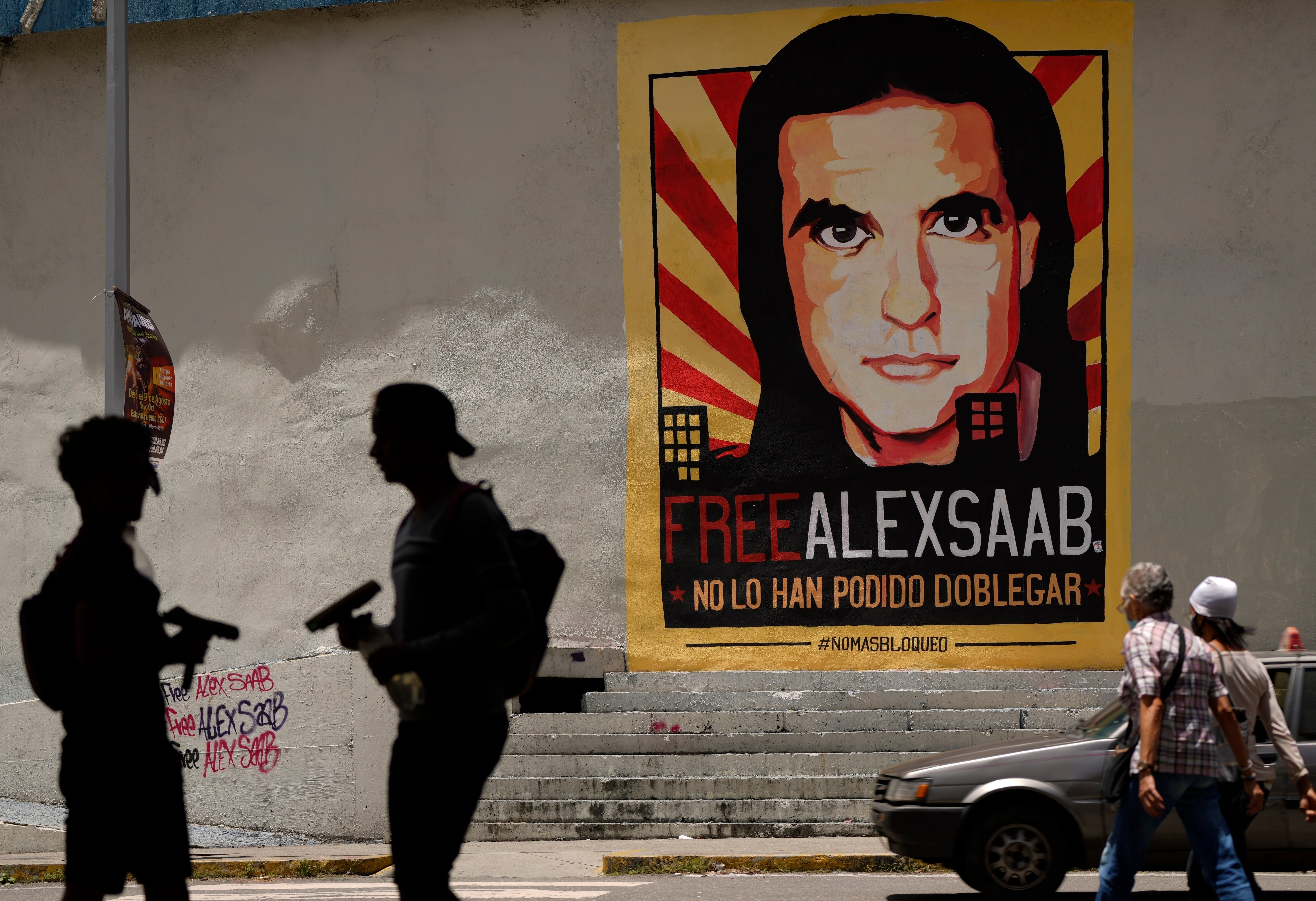Miami prosecutors partly dismiss charges against Maduro ally
Federal prosecutors in Miami have dismissed several criminal charges against an ally of Venezuelan President Nicolas Maduro as part of assurances it made to Cape Verde as part of a rancorous extradition fight

Your support helps us to tell the story
From reproductive rights to climate change to Big Tech, The Independent is on the ground when the story is developing. Whether it's investigating the financials of Elon Musk's pro-Trump PAC or producing our latest documentary, 'The A Word', which shines a light on the American women fighting for reproductive rights, we know how important it is to parse out the facts from the messaging.
At such a critical moment in US history, we need reporters on the ground. Your donation allows us to keep sending journalists to speak to both sides of the story.
The Independent is trusted by Americans across the entire political spectrum. And unlike many other quality news outlets, we choose not to lock Americans out of our reporting and analysis with paywalls. We believe quality journalism should be available to everyone, paid for by those who can afford it.
Your support makes all the difference.Federal prosecutors in Miami have dismissed several criminal charges against an ally of Venezuelan President Nicolas Maduro due to assurances they made to Cape Verde over a year ago as part of a rancorous extradition fight.
Alex Saab now faces a single count of conspiracy to commit money laundering. If found guilty, ha faces up to 20 years in prison — the maximum allowed by the African island nation when it agreed to send Saab to the U.S. last month.
The case against Saab has further strained relations between Washington and Caracas, which considers the Colombian-born businessman a diplomat. It also has disrupted nascent talks between Maduro's government and its opponents.
Saab, whose scheduled arraignment Monday was postponed for two weeks, is accused of paying bribes to siphon off $350 million from state contracts to build housing for Venezuela’s socialist government.
Maduro's government has condemned Saab's arrest as a form of kidnapping and spared no effort trying to block his extradition to the U.S. following his detention 16 months ago in Cape Verde while making a fuel stop en route to Iran.
It considers the 49-year-old a keeper of state secrets and has said any attempts to extract a confession could compromise Venezuela's national security. It's also rallied to its side Russia, which also considers his extradition illegal.
But it's unclear what leverage the Venezuelans have in preventing Saab from cooperating with federal investigators in exchange for a lighter sentence.
Almost as soon as Saab was place on a U.S.-bound Department of Justice airplane, Maduro’s government suspended negotiations taking place in Mexico with Venezuela’s U.S.-backed opposition, accusing the Biden administration of seeking to sabotage the talks.
The two sides have been meeting since August in a bid to jointly address the country’s ongoing humanitarian crisis, which has led more than 5 million people to flee the country in recent years, and pave the way for a democratic opening starting with this month’s regional elections.
Maduro's government also threw back into jail six American oil executives it accuses of corruption. They had been under house arrest in another politically charged case marked by allegations of wrongful detention.
Saab was indicted in 2019 on money-laundering charges for allegedly bribing Venezuelan officials and falsifying import documents to pocket more than $350 million from a low-income housing project.
On the same day as his indictment, he was sanctioned by the Trump administration for allegedly utilizing a network of shell companies spanning the globe — Turkey, Hong Kong, Mexico and the United Arab Emirates — to hide windfall profits from overvalued food contracts. Last month, his long-time business partner, fellow Colombian Alvaro Pulido, was indicted along with four others, including a former Venezuelan governor, that between 2016 and 2018 allegedly received more than $1 billion from Venezuelan state coffers for the purchase of food and medicine.
But Saab’s importance to Maduro's government ran much deeper.
As the U.S. ratcheted up sanctions on Venezuela, he is believed to have emerged as the government's main fixer with the international connections to circumvent the U.S. restrictions. His trip to Iran, described as a humanitarian mission by Maduro, was aimed at securing deals to sell the country's crude oil in exchange for much-needed fuel and other goods.
The Biden administration has tried to downplay the political impact of Saab’s extradition while blasting Maduro for using it as a pretext to suspend negotiations.
The case however is being closely followed by the families of nine Americans imprisoned in Venezuela who see Saab's future closely intertwined with the fate of their loved ones.
Those jailed include six oil executives who had been working for the Houston subsidiary of Venezuela’s state-owned oil giant PDVSA who were convicted and sentenced last year to long prison sentences for embezzling funds from a never-executed plan to refinance Citgo’s bonds. The families of the so-called Citgo 6 and the U.S. government have vehemently rejected the accusations and consider the men wrongfully detained.
Within hours of Saab’s extradition, security forces returned the oil executives to the infamous Helicoide jail where they’ve been held on and off since being lured to Caracas in 2017 for a meeting at which they were arrested by masked police who stormed a conference room where they were gathered.
Also at the prison is former U.S. Marine Matthew Heath, who is awaiting trial on weapons charges tied to a supposed plan to sabotage refineries, and two former Green Berets Caracas has tied to a failed cross-border raid from Colombia to overthrow Maduro.
___
Follow Goodman on Twitter: @APJoshGoodman